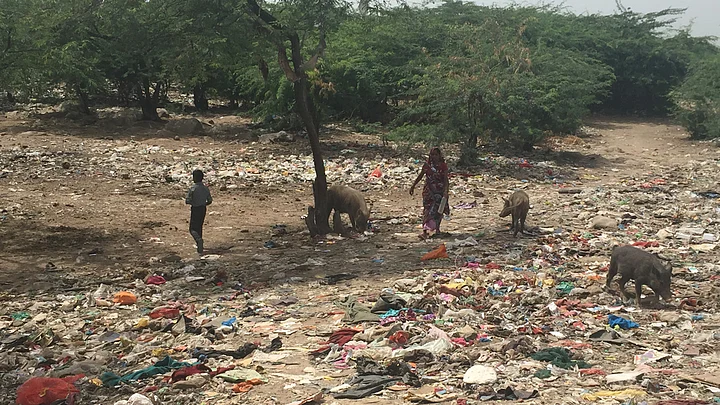When 35-year-old Sunita learnt that her community, will get toilets, she almost became ecstatic.
Bhanwar Singh Camp is an urban slum dwelling in the shadows of the Vasant Vihar in South Delhi.
However, her happiness was short lived.
“Open defecation is a socially acceptable and a traditional practice in our community. Sanitation is never discussed at home”, Sunita explains.
Having a closed place to defecate is a luxury for this community, yet the freshly constructed toilets did not encourage the residents to access it.
Another resident Ranjana laments when asked why the toilets remain unused, “the toilets were constructed almost a kilometre away from our community, we barely ever use it. We are left with no option but to defecate in the open”.
India is the second most populous country in the world and half of its population poops in the open, as per the UNICEF’s report on open defecation in India.
The report states the adverse affects of open defecation and its severe repercussions on infants:
Open defecation poses a serious threat to the health of children in India. The practice is the main reason India reports the highest number of diarrhoeal deaths among children under-five in the world. Every year, diarrhoea kills 188,000 children under five in India. Children weakened by frequent diarrhoea episodes are more vulnerable to malnutrition, stunting, and opportunistic infections such as pneumonia.
Reshaping attitudes
The Ahmedabad Municipal corporation has recently come up with an innovative approach to encourage people to use toilets. According to a report by BBC, the corporation is paying the residents of Chandoliya slum in Ahmedabad to defecate in the freshly constructed toilets.
Anil Prajapati, chairman of the Gujarat Sanitation Development Organisation told BBC:
We have made public toilets but people still don’t use them. Some of these people fear that there are witches inside or that their children will be kidnapped.
Since owning a toilet is rarely seen as aspirational in our country, growing out of the practice of open defecation might take more initiatives such as that of the Ahmedabad Muncipal Corporation.
Sunita, from Bhanwar Singh Camp rightly puts it, “constructing a toilet is not the only job of the government. It must analyse its usage, benefits, and problems. Without this, a mere construction rarely helps us.”
(At The Quint, we question everything. Play an active role in shaping our journalism by becoming a member today.)
